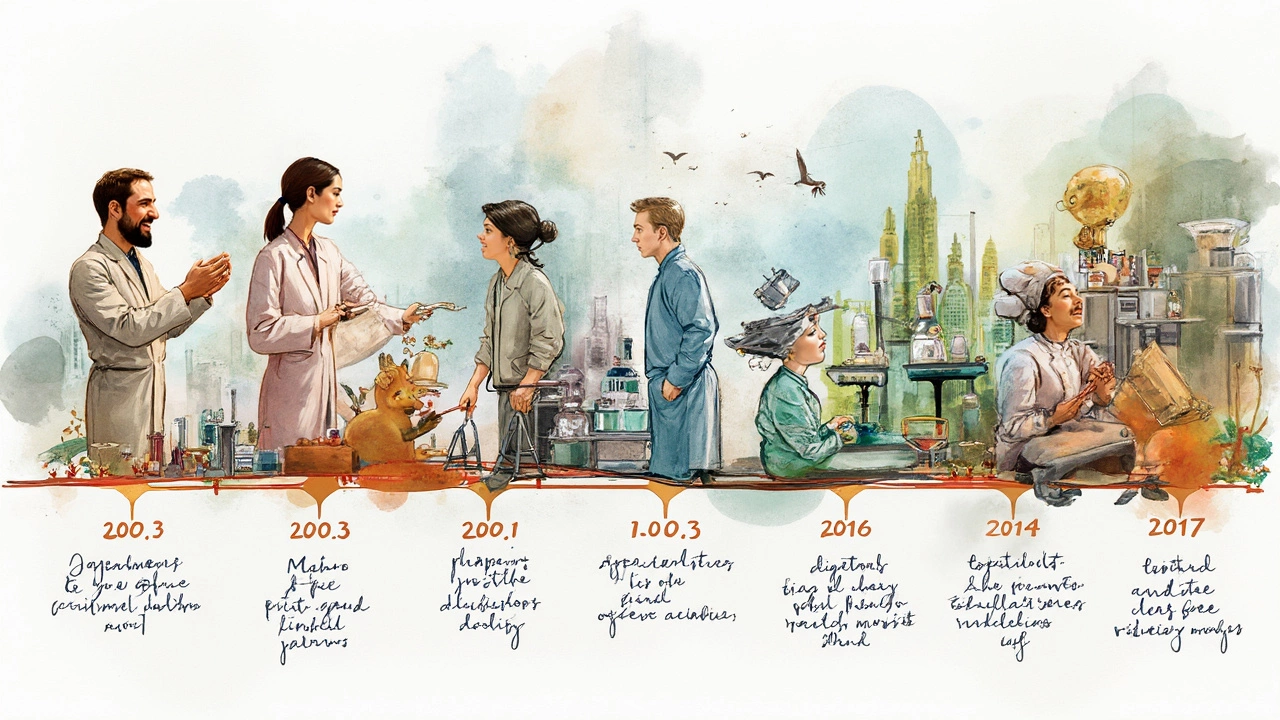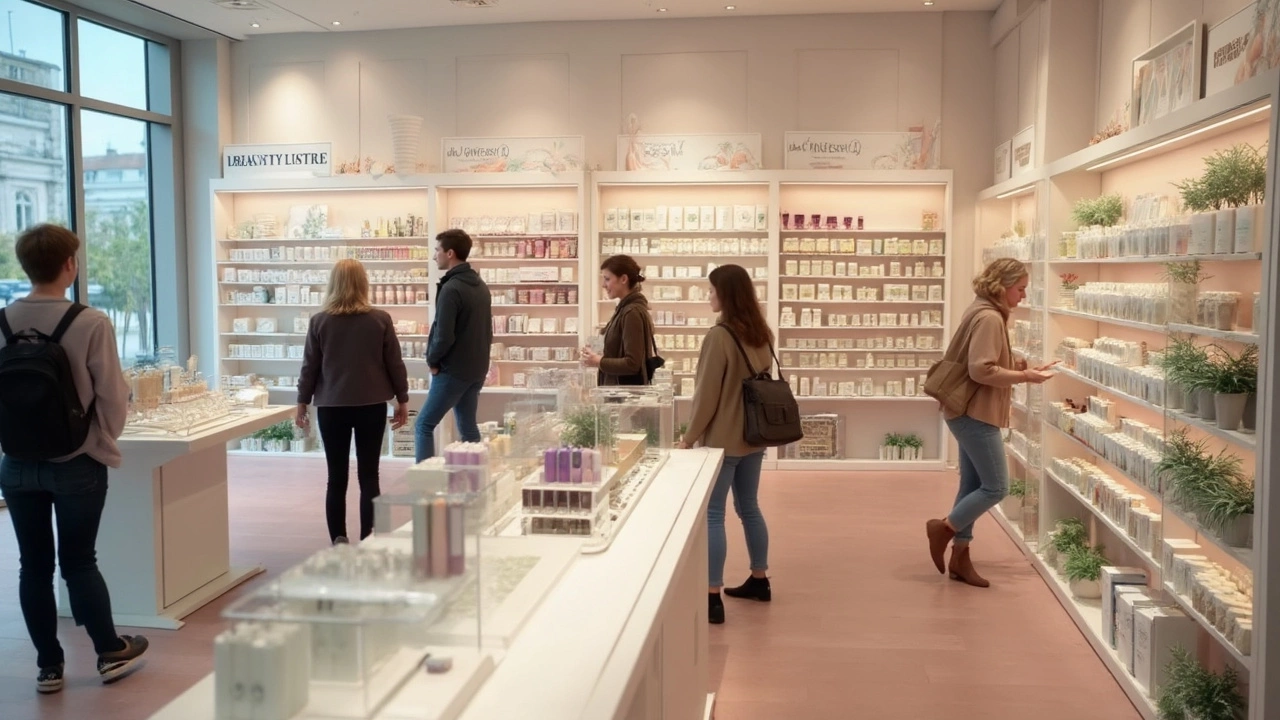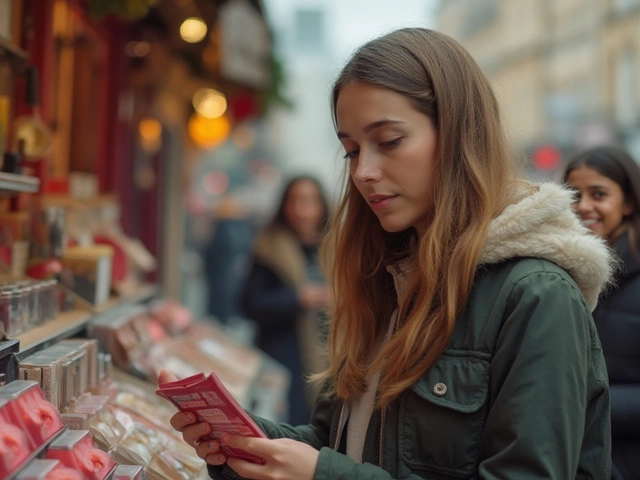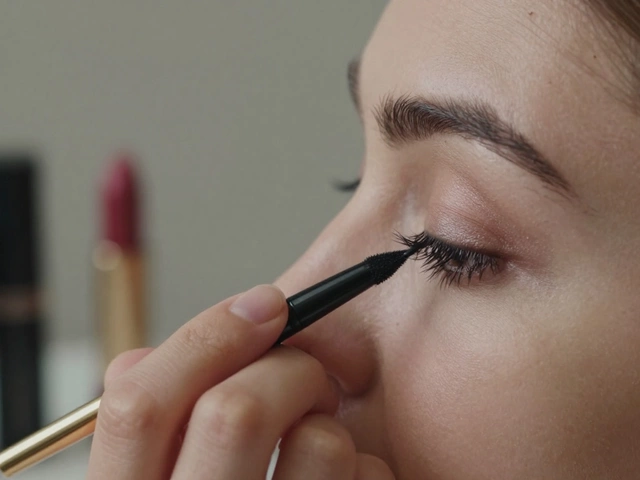The beauty world is abuzz with talk about cruelty-free products, but what exactly does that mean? Essentially, 'cruelty-free' indicates that a product wasn't tested on animals at any stage of production. For many folks, this is a big deal because no one wants innocent fluff balls suffering for our lipstick or soap.
Now, talking about Dove, a brand many of us have used in our daily routines, people often wonder: Is Dove cruelty-free? Dove has made some strides in this area, but understanding the nitty-gritty details is key. They've publicly stated that they don't test their products on animals anywhere in the world, earning them PETA approval. But there's a catch when it comes to selling in places where animal testing is required by law. That’s the twisty part!
- Understanding Cruelty-Free: What Does It Mean?
- Dove's Stance on Animal Testing
- Dove's Certifications and Initiatives
- Comparing Dove with Other Brands
- The Impact of Cruelty-Free Choices
- Tips for Building a Cruelty-Free Beauty Routine
Understanding Cruelty-Free: What Does It Mean?
The term cruelty-free is tossed around a lot in the beauty industry, but it can sometimes feel like a buzzword. So, what's it really about? At its core, cruelty-free means a product wasn't tested on animals at any point during its creation. This concept is especially crucial for those who care about animal welfare and want to make ethical choices.
Why is this important? For decades, animals like rabbits, guinea pigs, and mice have faced painful testing processes to ensure products are safe for human use. Thankfully, scientific advancements have introduced alternative methods that don't involve animals at all, like in vitro testing and computer-modelling techniques.
Many brands, including some big names like Dove, are moving toward cruelty-free practices. However, it's not always clear-cut. Brands may formulate new products without animal testing but still sell in countries where such testing is mandatory. This complicates the cruelty-free claim.
To truly be considered cruelty-free, a brand should meet a few criteria:
- No animal testing at any stage of product development.
- Products aren't sold in regions requiring animal testing by law.
- They don't commission third parties to test on animals on their behalf.
Certifications from organizations like PETA and Leaping Bunny help consumers identify which brands are genuinely cruelty-free. These certifications involve strict verification processes to ensure compliance with cruelty-free standards.
Staying informed and checking for certification logos turns you into an empowered consumer, making choices aligned with your values while reducing animal suffering in the industry.
Dove's Stance on Animal Testing
Okay, so let's dig into what Dove is actually doing in terms of animal testing, because this is a hot topic for anyone looking into cruelty-free beauty options. Dove, a part of Unilever, has made quite the splash with their announcement back in 2018 when they said they’d get rid of animal testing globally. This move was a big deal for fans of the brand hoping to keep their beauty routine ethical.
They’re approved by PETA, which means Dove has pledged not to conduct or fund animal testing anywhere in the world. Their products even come with a 'cruelty-free' logo on them, which is super reassuring if you’re trying to make better choices for our furry friends.
However, it’s not all sunshine and rainbows. The tricky part comes down to places where animal testing is required by law—like China used to insist. Dove claims they’ve worked it out by having their products manufactured locally in China, thus avoiding mandatory testing since 2014, but this is where you’d have to do some sleuthing to be sure about changes in Chinese regulations.
To sum it up, Dove is making effort towards being a strong name in the cruelty-free community, yet it's always wise to check the latest reports or updates on this ever-evolving subject. If transparency is up your alley, Dove's public statements on animal testing and their ongoing commitments are detailed on their website, making it easier for consumers to keep informed.
Dove's Certifications and Initiatives
So, what about Dove and its badges of honor when it comes to cruelty-free commitments? Well, let’s get into that. Dove's got a pretty important certification from PETA. This means they've joined the ranks of companies that PETA recognizes as cruelty-free, meaning they don’t test on animals. This was a big deal when it happened in 2018, as Dove made headlines for this positive shift.
Beyond PETA's stamp, Dove has also taken some notable initiatives to help push ethical beauty norms. They've been part of Unilever's Positive Beauty campaign, aiming to get all their brands within the group to be more sustainable and ethical. Talk about setting the bar high!
There’s also the question of where these products are sold. For anyone concerned about cruelty-free status in countries where animal testing is mandatory, Dove has worked hard to ensure they have alternative methods that comply with those local regulations, which isn’t always a walk in the park.
To give you a clearer view, here's a small look at Dove's key moves:
- 2018: Earned PETA's cruelty-free certification.
- Signed a global company policy to not test on animals anywhere in the world.
- Part of Unilever's Positive Beauty commitment, promoting sustainability and ethical practices.
The takeaway? Dove's certifications and initiatives show they're on a promising path, adding more assurance for folks aiming to make ethical beauty choices.

Comparing Dove with Other Brands
So, how does Dove stack up against other cruelty-free brands? The competition is fierce, and consumers face a dizzying array of choices. First off, while Dove claims to be cruelty-free, it's not Leaping Bunny certified—a gold standard in the industry for ensuring no animal testing occurs at any point in the product's lifecycle.
Let's consider some known cruelty-free brands. Brands like Lush and The Body Shop have long been in the forefront of ethical beauty. Lush is well-known for its strong anti-animal testing policies, going as far as to actively campaign against the practice. Meanwhile, The Body Shop has a robust certification and transparency policy, often used as a model for other brands aspiring to be cruelty-free.
- Lush: 100% vegetarian and against animal testing; campaigns globally for change.
- The Body Shop: Certified by Leaping Bunny; regularly audits and updates their policies.
- Urban Decay: Offers vegan options and holds PETA certification, not testing on animals.
But here's where it gets tricky with Dove. They don't test on animals either, according to their statement, but they sell their products in markets like China, where third-party testing can still occur due to regulatory laws. This means that while they avoid testing themselves, the practice might happen indirectly.
In terms of ethical beauty, these nuances aren’t just fine print—they’re deal-breakers for those committed to animal welfare. The confusion often makes it hard for shoppers aiming to curate a fully ethical lineup of products.
For those diving into the world of cruelty-free beauty, understanding brand policies and certifications is key. And let’s be honest, it feels good choosing products from companies that align with our values, right?
The Impact of Cruelty-Free Choices
Choosing cruelty-free products isn’t just about feeling good while shopping; it’s part of a bigger movement that influences real change in the beauty industry. By supporting brands like Dove that commit to no animal testing, you're encouraging broader shifts towards ethical practices.
First off, there's the huge animal welfare aspect. When you buy products from brands that don't test on animals, you're helping reduce the demand for these harmful practices. It's like casting your vote for kindness with your wallet.
Another perk? Brands that focus on cruelty-free often embrace other ethical values too, like being vegan or using sustainable packaging. This can lead to more environmentally friendly choices overall. Just think about it: less animal testing, less waste, and often lower chemical use—they’re aiming for a smaller footprint on Mother Earth.
And then there’s the market influence. As more folks demand cruelty-free options, companies feel the heat to adapt. This can lead to wider availability and innovation in makeup and personal care products. Competitors will race to match these standards, gradually transforming industry norms. It’s capitalism working for positive change!
To stay informed, check product labels and look for certifications from recognized organizations like PETA and Leaping Bunny. They do the vetting so you can shop with confidence. So next time you’re faced with a choice, remember that going cruelty-free boosts not only the welfare of animals but also drives the entire beauty industry towards a more compassionate future.
Tips for Building a Cruelty-Free Beauty Routine
Switching to a cruelty-free beauty routine might sound like a big leap, but it doesn't have to be complicated. A few straightforward changes can make a world of difference, and you'll be supporting a more ethical beauty industry. Let’s break down some steps to help you get started.
First off, do some homework! Look out for brands that clearly label themselves as cruelty-free. Using apps like 'Think Dirty' or websites like 'Leaping Bunny' can help you sniff out the real cruelty-free products. Dove and other brands that state their cruelty-free status should be on your radar if you care about ethical beauty.
Next, start small. Replace one product at a time. Swap out items as they run out. This isn't a race! Begin with products you use the most, like your daily cleanser or moisturizer.
- Check for cruelty-free logos. Certification from organizations like PETA or Leaping Bunny is a good sign.
- Research and follow beauty influencers committed to cruelty-free options. They usually have the scoop on the latest reliable products.
- Talk to your favorite brands. Don’t be shy about asking them directly about their animal testing policies.
Here's a pro tip: Keep a list of cruelty-free brands handy when shopping. It saves time and stress when faced with multiple choices.
When diving into cruelty-free, try not to go all or nothing. Embrace the fact that you're making gradual steps, which is way better than none! Plus, by choosing cruelty-free, you're not just being kinder to animals; you're encouraging companies to shift towards more humane practices.


